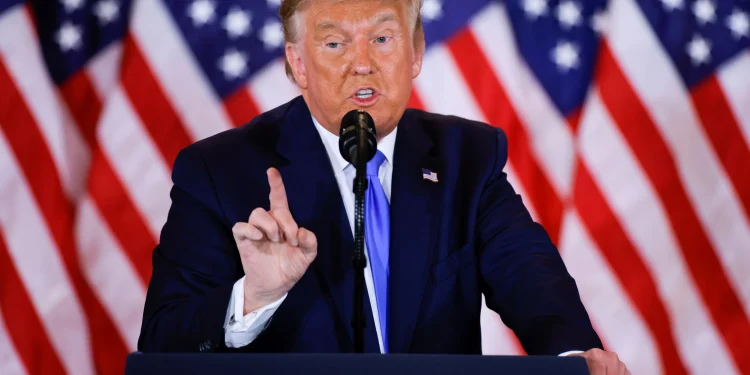Director China Africa Institute Sierra Leone, Alpha Mohamed Jalloh
The difficulty that arises in comprehending the analysis done by Mr. Donald Trump to effect tariffs at the advantage of the United States is not only seen as unfortunate but rather championing protectionism at the detriment of others. This act is deliberate and must not be allowed to stand the test of time. The United States has recently escalated its use of tariffs under President Donald Trump, sparking widespread criticism and retaliatory measures from trading partners. This aggressive tariff strategy, framed as a tool to protect American economic interests, has raised concerns about its economic, diplomatic, and political consequences.
Most recently we have seen the action of President Trump has significantly ramped up tariffs on imports from major trading partners like China, Canada, and Mexico. For instance:
– On April 9, 2025, tariffs on Chinese goods were increased to 104 percent, following a previous hike to 54percent.
– Canada and Mexico now face a 25 percent tariff on imports, with Canadian energy products taxed at 10percent.
This is an attempt to destroy the gains we have made in terms of balanced trade and the US is poised to promote unilateralism, dictatorship and protectionism. It begs the imagination of what is left with World Trade Organization in my candid opinion it has been rendered as a toothless bulldog. It is therefore necessary to reactivate the NEW ORDER that guarantees a win -win situation.
The unfortunate and disgusting statement is the call for dialogue by the US, if the United States genuinely wants an amicable settlement, it must cease forthwith its reckless actions. China’s stands is clear there are no winners in tariff wars or trade wars, China does not want to engage in such wars, but China is not afraid if confronted and therefore the US needs to embrace equality, mutual respect and justice for all. US should desist from bullying and uphold best practices.
The economic consequences if allowed US madness to continue
- Inflationary Pressures: Tariffs increase costs for U.S. importers, which are passed on to consumers through higher prices. The Congressional Budget Office estimates that these tariffs could cost the average American household an additional $1,300 annually
- Impact on Businesses: Small businesses are disproportionately affected as they lack the resources to absorb higher costs or shift supply chains quickly
- Trade Retaliation: Trading partners like China, Canada, and Mexico have responded with countermeasures. For example:
– Canada imposed tariffs on over $100 billion worth of U.S. goods
– The European Union has criticized the tariffs as unjustified and damaging to global economic stability: The World Bank warns that widespread tariff retaliation could reduce global economic growth by 0.3 percentage points in 2025, exacerbating existing challenges like inflation and supply chain disruption. The unilateral imposition of tariffs has strained U.S. relations with allies and trading partners:-Traditional allies like Canada, Japan, South Korea, and Germany have expressed frustration over what they perceive as aggressive protectionism undermining multilateral cooperation.
– China’s government accused the U.S. of violating WTO rules and disrupting the global economic order for selfish interests. This erosion of trust could weaken America’s leadership in global trade and diplomacy.
– Tariffs are often portrayed as a tool to reduce trade deficits or protect domestic industries. However, in today’s interconnected economy, such protectionist measures ignore structural realities like high American wages and efficient global supply chains
– Historically cautious use of tariffs has given way to sweeping measures that lack democratic oversight or stakeholder input. Critics point out that these executive actions bypass Congress and public discourse, raising concerns about accountability.
Conclusion
The United States’ recent tariff policies represent a significant departure from traditional trade practices. While aimed at asserting American economic interests, these measures risk triggering prolonged trade wars, harming domestic consumers and businesses, alienating allies, a strategy will achieve its intended goals or leave lasting damage to America’s economy and international standing. In this journey let us reject hegemony and stand for the right of all.












